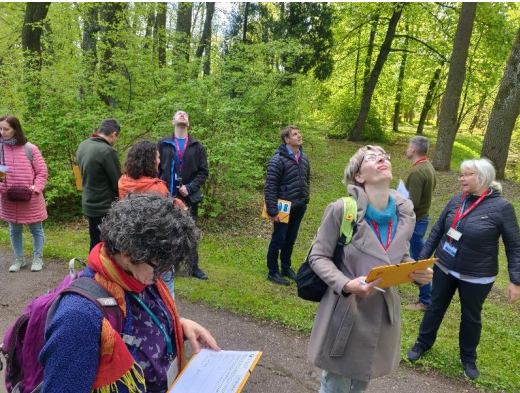Plant Health Week and the IPSN
-
Region
Global -
Programme
International Plant Sentinel Network -
Workstream
Saving Plants -
Type
News -
Source
BGCI
News published: 12 May 2023
Plant Health Week, with the International Day of Plant Health at its core, is an opportunity for organisations and people around the world to consider how their activities affect plant health, how they manage their phytosanitary risks and how these risks could endanger the world’s flora. For the IPSN, this means acknowledging the pests and diseases that threaten our plants and reflecting on why we do what we do to defend against them. This year’s Plant Health Week is especially important to us because its theme ‘environmental protection’ coincides with our tenth year in operation, working to protect biodiversity in- and ex-situ.
Plant pests and diseases are a growing global threat to plant health: a globally connected world brings biosecurity issues as species are introduced into new environments with new potential host plants. Climate change is also moving the habitable boundaries for potential pests, bringing them into contact with new hosts, and brings stressful environmental conditions such as reduced rainfall which can leave plants vulnerable to infection. These threats endanger not only our crops, but the trees that line our streets and the plants that fill our wild places. Dutch elm disease and ash dieback are two famous examples threatening everything from urban greenery to ancient forests. This is an international issue, with global causes and global issues, so its management requires an international approach.

Botanic gardens host a third of the world’s plant species and are brimming with botanic expertise, making them superb surveyors of plant pests and disease. For the last decade, the IPSN has partnered with these institutions to record the spread of these threats, monitor the emergence of new ones and discover the variety of hosts they can target: with 90 member locations across 28 different countries (and growing), the network serves as a world-spanning early warning system against plant diseases. Our targeted survey programmes are tuned towards key threats such as rose rosette virus, beech leaf disease and the infamous emerald ash borer. Through our network, the spread of these species is tracked and the breadth of at-risk species can be measured across a range of climates. By utilising the taxon diversity already present in botanic collections, the IPSN can detect and report new pest-host interactions to reveal the scale of plant health threats. This same held diversity allows us to oversee the monitoring of plant species grown ex-situ abroad and identify the foreign organisms which could prove serious threats if introduced to those species’ native range. Right now, the IPSN has a programme to survey UK species held in Australian and New Zealand collections, as well as American species held in Europe and South America. By monitoring species exposed to foreign environments, we can spot invasive species before they are ever introduced.

The IPSN also serves to support botanic gardens in their own plant health endeavours, whether providing information on key pests, bringing experts together in workshops or describing best practices in biosecurity. Our guidance documents and online course describe some of the most important and useful ways botanic gardens can maintain the health of their plants, as well as reduce the risk of outbreaks within and beyond their fences. Our posters, factsheets, symptom surveys and other publications help gardens to keep their staff informed and train them to recognise symptoms so that they can react effectively. This all reduces the risk of pest species establishing themselves in botanic gardens or being transferred between them, helping to protect their valuable collections. Botanic gardens and arboreta are, after all, vital havens for rare plants, essential research institutions and fantastic educational sites whose holdings are worth protecting for the benefit of global floral biodiversity. As the health of their plants has implications for the important work that they do around the world and for the global longevity of the taxa they safeguard, there are few contexts in which the International Day of Plant Health is more important.
Support BGCI
You can support our plant conservation efforts by sponsoring membership for small botanic gardens, contributing to the Global Botanic Garden Fund, and more!
Become a Member
Be part of the largest network of botanic gardens and plant conservation experts in the world by joining BGCI today!